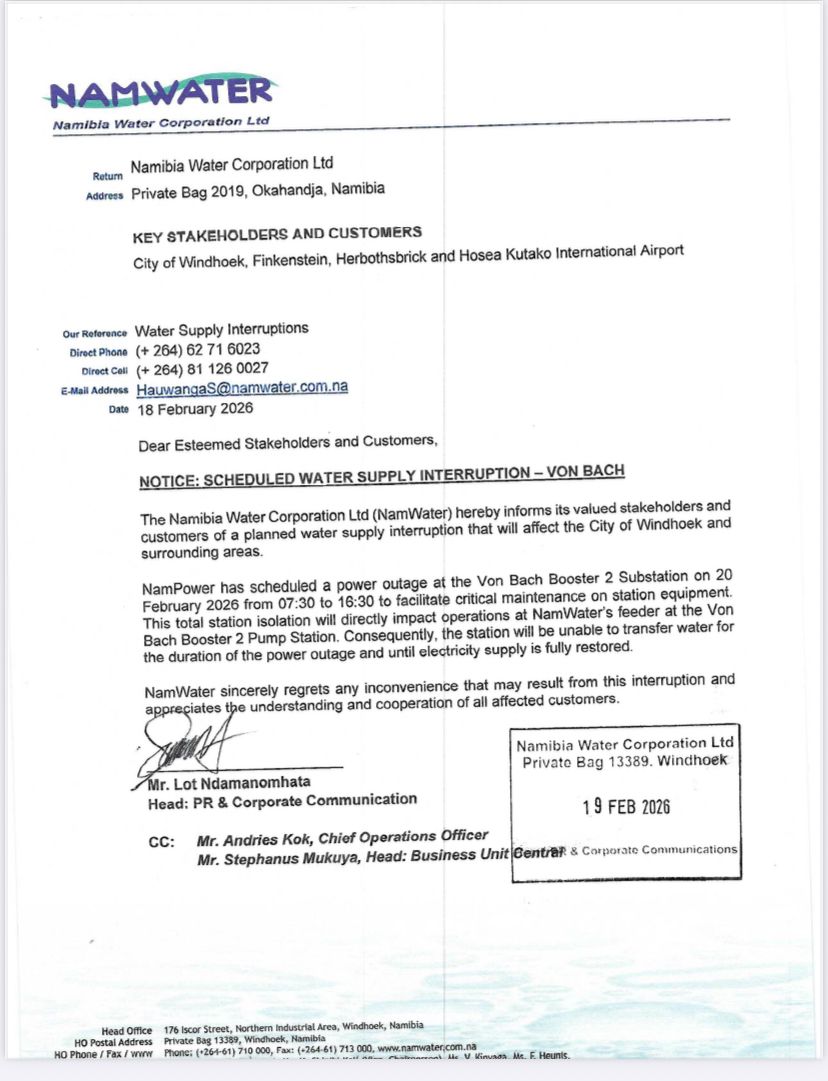The fact that the National Archives of Namibia, which regulates the management of records and archives in the public service of Namibia, has existed for 84 years is evidence that records and archives management is nothing new to Namibia.
However, the pace at which it is advancing has become a little sluggish.
Back in the day, this could be attributed to a lack of expertise, but in this day and age we have more than enough qualified records management personnel.
In addition, most have been trained at the University of Namibia.
The sluggish pace at which records management is advancing can be attributed to a variety of reasons.
The reluctance and ignorance at some institutions to fully apply themselves to records management is deeply concerning.
The undermining of this discipline, which eventually affects its professionals, could be one reason why progress at many institutions has been, at best, “leisurely”.
This applies to both the public and private sectors.
In some cases it can be attributed to a lack of awareness about the importance of proper records management; in others to sheer ignorance.
RESISTANCE TO CHANGE
Some staff members, especially in the public services, are reluctant to change, especially when it comes to filing.
They persist in filing according to their own preferences, even where there is an approved file plan, or even after receiving records management training.
To their credit, most records management personnel at these institutions try by all means to sensitise their colleagues, yet they still remain reluctant.
This hinders progress.
In the private sector, some institutions have introduced records management structures solely because they have run out of ideas on what to do with the increased volumes of paper records.
These divisions are normally acutely understaffed. In too many cases they also only have one employee, who is the head.
It is unrealistic to expect a division to be fully functional and to effectively execute its duties with one employee.
In some cases, records managers are undermined in that they do not participate in the acquiring or development of systems aimed at managing electronic records.
They have to settle for any system they’re given, which too often ends up being inappropriate because they were acquired with no involvement of qualified records management personnel.
TEAM WORK REQUIRED
Most of these systems are developed by the IT department alone, which is not supposed to be the case.
Yes, IT has the capacity to develop systems but an Electronic Documents and Records Management System (EDRMS) requires a collective effort.
It needs input from both IT and records management professionals because these are the people trained and qualified to understand necessary requirements and specifications of the EDRMS.
By and large, records management personnel are eager to implement policies relevant and vital to the management of records.
However, the undermining ignorance and lack of input from other stakeholders hinder implementation.
It is shocking that some organisations believed to have a rich trove of records do not have proper records management structures.
Yet others don’t even have approved file plans. And in some cases where there are file plans, they are not implemented.
This is because of a lack of knowledge and understanding as a result of not having records management in their structures or qualified records management personnel.
These file plans are probably lying around somewhere collecting dust. Why have a file plan if you’re not going to implement it?
TIME TO ACT
We need a change in attitude towards records management if this invaluable service is to advance.
Even though records management personnel are responsible for curating records, effective records management requires a collective effort from all stakeholders.
Records management personnel should be supported, as opposed to being undermined, to ensure advancement in the management of records.
Also, all organisations should have records management within their structures and employ qualified personnel because when push comes to shove, they’ll wish they had.
- Asser Nakale is an assistant archivist at the ministry of education, Oshikoto region. This article is written in his personal capacity, Twitter: @AsserNakale,
Facebook: Asser L N Nakale
In an age of information overload, Sunrise is The Namibian’s morning briefing, delivered at 6h00 from Monday to Friday. It offers a curated rundown of the most important stories from the past 24 hours – occasionally with a light, witty touch. It’s an essential way to stay informed. Subscribe and join our newsletter community.

The Namibian uses AI tools to assist with improved quality, accuracy and efficiency, while maintaining editorial oversight and journalistic integrity.
Stay informed with The Namibian – your source for credible journalism. Get in-depth reporting and opinions for
only N$85 a month. Invest in journalism, invest in democracy –
Subscribe Now!









